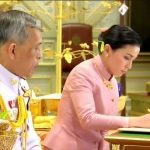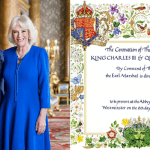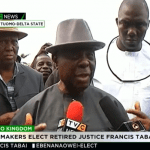The influential and vocal Sultan Ibrahim Sultan Iskandar of the Southern State of Johor has been chosen by Malaysia’s royal families to be the nation’s next King.
In Malaysia, the role of the king is primarily ceremonial; however, because of protracted political unrest, the monarchy has gained greater clout recently.
This has allowed the current king to exercise discretionary powers that have not been used much.
The Heads of Malaysia’s nine royal families alternately rule the country for five years as monarchs under a peculiar system.
The monarch acts as the Head of State of the parliamentary democracy in Southeast Asia.
Sultan Ibrahim will take over from current King Al-Sultan Abdullah on January 31, 2024, the keeper of the rulers’ seal said in a statement on Friday.
Unlike other traditional Malaysian rulers, Sultan Ibrahim has been outspoken about politics and has said he has a good relationship with Prime Minister Anwar Ibrahim.
The Sultan, who is known to have a big collection of luxury cars and motorcycles, has wide-ranging business interests from real estate to mining.
King Al-Sultan played an unusually active role in Malaysian politics, picking the country’s last three Prime Ministers.
The federal constitution grants the monarch only a few discretionary powers, with the king largely required to act upon the advice of the Prime Minister and cabinet.
It also allows the king to appoint a Prime Minister who he believes has a parliamentary majority, a power never utilised until 2020, as the Premier is typically picked through an election.
The influential and vocal Sultan Ibrahim Sultan Iskandar of the Southern State of Johor has been chosen by Malaysia’s royal families to be the nation’s next King.
In Malaysia, the role of the king is primarily ceremonial; however, because of protracted political unrest, the monarchy has gained greater clout recently.
This has allowed the current king to exercise discretionary powers that have not been used much.
The Heads of Malaysia’s nine royal families alternately rule the country for five years as monarchs under a peculiar system.
The monarch acts as the Head of State of the parliamentary democracy in Southeast Asia.
Sultan Ibrahim will take over from current King Al-Sultan Abdullah on January 31, 2024, the keeper of the rulers’ seal said in a statement on Friday.
Unlike other traditional Malaysian rulers, Sultan Ibrahim has been outspoken about politics and has said he has a good relationship with Prime Minister Anwar Ibrahim.
The Sultan, who is known to have a big collection of luxury cars and motorcycles, has wide-ranging business interests from real estate to mining.
King Al-Sultan played an unusually active role in Malaysian politics, picking the country’s last three Prime Ministers.
The federal constitution grants the monarch only a few discretionary powers, with the king largely required to act upon the advice of the Prime Minister and cabinet.
It also allows the king to appoint a Prime Minister who he believes has a parliamentary majority, a power never utilised until 2020, as the Premier is typically picked through an election.
The influential and vocal Sultan Ibrahim Sultan Iskandar of the Southern State of Johor has been chosen by Malaysia’s royal families to be the nation’s next King.
In Malaysia, the role of the king is primarily ceremonial; however, because of protracted political unrest, the monarchy has gained greater clout recently.
This has allowed the current king to exercise discretionary powers that have not been used much.
The Heads of Malaysia’s nine royal families alternately rule the country for five years as monarchs under a peculiar system.
The monarch acts as the Head of State of the parliamentary democracy in Southeast Asia.
Sultan Ibrahim will take over from current King Al-Sultan Abdullah on January 31, 2024, the keeper of the rulers’ seal said in a statement on Friday.
Unlike other traditional Malaysian rulers, Sultan Ibrahim has been outspoken about politics and has said he has a good relationship with Prime Minister Anwar Ibrahim.
The Sultan, who is known to have a big collection of luxury cars and motorcycles, has wide-ranging business interests from real estate to mining.
King Al-Sultan played an unusually active role in Malaysian politics, picking the country’s last three Prime Ministers.
The federal constitution grants the monarch only a few discretionary powers, with the king largely required to act upon the advice of the Prime Minister and cabinet.
It also allows the king to appoint a Prime Minister who he believes has a parliamentary majority, a power never utilised until 2020, as the Premier is typically picked through an election.
The influential and vocal Sultan Ibrahim Sultan Iskandar of the Southern State of Johor has been chosen by Malaysia’s royal families to be the nation’s next King.
In Malaysia, the role of the king is primarily ceremonial; however, because of protracted political unrest, the monarchy has gained greater clout recently.
This has allowed the current king to exercise discretionary powers that have not been used much.
The Heads of Malaysia’s nine royal families alternately rule the country for five years as monarchs under a peculiar system.
The monarch acts as the Head of State of the parliamentary democracy in Southeast Asia.
Sultan Ibrahim will take over from current King Al-Sultan Abdullah on January 31, 2024, the keeper of the rulers’ seal said in a statement on Friday.
Unlike other traditional Malaysian rulers, Sultan Ibrahim has been outspoken about politics and has said he has a good relationship with Prime Minister Anwar Ibrahim.
The Sultan, who is known to have a big collection of luxury cars and motorcycles, has wide-ranging business interests from real estate to mining.
King Al-Sultan played an unusually active role in Malaysian politics, picking the country’s last three Prime Ministers.
The federal constitution grants the monarch only a few discretionary powers, with the king largely required to act upon the advice of the Prime Minister and cabinet.
It also allows the king to appoint a Prime Minister who he believes has a parliamentary majority, a power never utilised until 2020, as the Premier is typically picked through an election.
The influential and vocal Sultan Ibrahim Sultan Iskandar of the Southern State of Johor has been chosen by Malaysia’s royal families to be the nation’s next King.
In Malaysia, the role of the king is primarily ceremonial; however, because of protracted political unrest, the monarchy has gained greater clout recently.
This has allowed the current king to exercise discretionary powers that have not been used much.
The Heads of Malaysia’s nine royal families alternately rule the country for five years as monarchs under a peculiar system.
The monarch acts as the Head of State of the parliamentary democracy in Southeast Asia.
Sultan Ibrahim will take over from current King Al-Sultan Abdullah on January 31, 2024, the keeper of the rulers’ seal said in a statement on Friday.
Unlike other traditional Malaysian rulers, Sultan Ibrahim has been outspoken about politics and has said he has a good relationship with Prime Minister Anwar Ibrahim.
The Sultan, who is known to have a big collection of luxury cars and motorcycles, has wide-ranging business interests from real estate to mining.
King Al-Sultan played an unusually active role in Malaysian politics, picking the country’s last three Prime Ministers.
The federal constitution grants the monarch only a few discretionary powers, with the king largely required to act upon the advice of the Prime Minister and cabinet.
It also allows the king to appoint a Prime Minister who he believes has a parliamentary majority, a power never utilised until 2020, as the Premier is typically picked through an election.
The influential and vocal Sultan Ibrahim Sultan Iskandar of the Southern State of Johor has been chosen by Malaysia’s royal families to be the nation’s next King.
In Malaysia, the role of the king is primarily ceremonial; however, because of protracted political unrest, the monarchy has gained greater clout recently.
This has allowed the current king to exercise discretionary powers that have not been used much.
The Heads of Malaysia’s nine royal families alternately rule the country for five years as monarchs under a peculiar system.
The monarch acts as the Head of State of the parliamentary democracy in Southeast Asia.
Sultan Ibrahim will take over from current King Al-Sultan Abdullah on January 31, 2024, the keeper of the rulers’ seal said in a statement on Friday.
Unlike other traditional Malaysian rulers, Sultan Ibrahim has been outspoken about politics and has said he has a good relationship with Prime Minister Anwar Ibrahim.
The Sultan, who is known to have a big collection of luxury cars and motorcycles, has wide-ranging business interests from real estate to mining.
King Al-Sultan played an unusually active role in Malaysian politics, picking the country’s last three Prime Ministers.
The federal constitution grants the monarch only a few discretionary powers, with the king largely required to act upon the advice of the Prime Minister and cabinet.
It also allows the king to appoint a Prime Minister who he believes has a parliamentary majority, a power never utilised until 2020, as the Premier is typically picked through an election.
The influential and vocal Sultan Ibrahim Sultan Iskandar of the Southern State of Johor has been chosen by Malaysia’s royal families to be the nation’s next King.
In Malaysia, the role of the king is primarily ceremonial; however, because of protracted political unrest, the monarchy has gained greater clout recently.
This has allowed the current king to exercise discretionary powers that have not been used much.
The Heads of Malaysia’s nine royal families alternately rule the country for five years as monarchs under a peculiar system.
The monarch acts as the Head of State of the parliamentary democracy in Southeast Asia.
Sultan Ibrahim will take over from current King Al-Sultan Abdullah on January 31, 2024, the keeper of the rulers’ seal said in a statement on Friday.
Unlike other traditional Malaysian rulers, Sultan Ibrahim has been outspoken about politics and has said he has a good relationship with Prime Minister Anwar Ibrahim.
The Sultan, who is known to have a big collection of luxury cars and motorcycles, has wide-ranging business interests from real estate to mining.
King Al-Sultan played an unusually active role in Malaysian politics, picking the country’s last three Prime Ministers.
The federal constitution grants the monarch only a few discretionary powers, with the king largely required to act upon the advice of the Prime Minister and cabinet.
It also allows the king to appoint a Prime Minister who he believes has a parliamentary majority, a power never utilised until 2020, as the Premier is typically picked through an election.
The influential and vocal Sultan Ibrahim Sultan Iskandar of the Southern State of Johor has been chosen by Malaysia’s royal families to be the nation’s next King.
In Malaysia, the role of the king is primarily ceremonial; however, because of protracted political unrest, the monarchy has gained greater clout recently.
This has allowed the current king to exercise discretionary powers that have not been used much.
The Heads of Malaysia’s nine royal families alternately rule the country for five years as monarchs under a peculiar system.
The monarch acts as the Head of State of the parliamentary democracy in Southeast Asia.
Sultan Ibrahim will take over from current King Al-Sultan Abdullah on January 31, 2024, the keeper of the rulers’ seal said in a statement on Friday.
Unlike other traditional Malaysian rulers, Sultan Ibrahim has been outspoken about politics and has said he has a good relationship with Prime Minister Anwar Ibrahim.
The Sultan, who is known to have a big collection of luxury cars and motorcycles, has wide-ranging business interests from real estate to mining.
King Al-Sultan played an unusually active role in Malaysian politics, picking the country’s last three Prime Ministers.
The federal constitution grants the monarch only a few discretionary powers, with the king largely required to act upon the advice of the Prime Minister and cabinet.
It also allows the king to appoint a Prime Minister who he believes has a parliamentary majority, a power never utilised until 2020, as the Premier is typically picked through an election.














